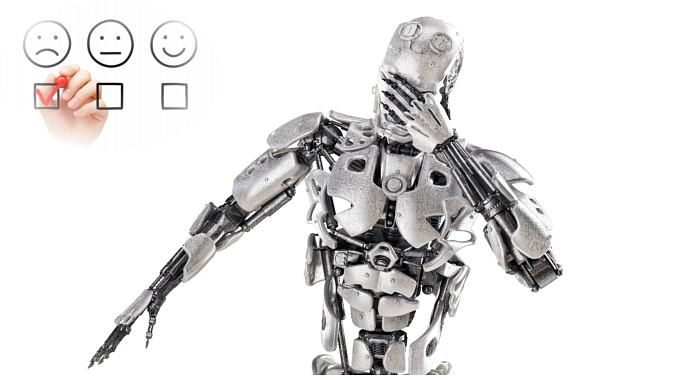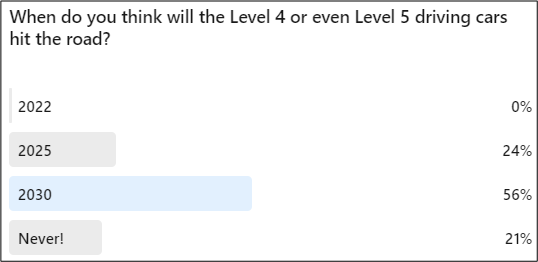
Self-driving car fans may have to exercise patience. A recent sample survey indicates that it may take longer than enthusiasts like Elon Musk hope.
As a kid, I loved the idea of computers and technology bringing prosperity and progress to humanity. During my time in college, I was fascinated by the potential of artificial intelligence. To me, autonomous driving is a natural expansion of the technological horizon. However, a long time ago, it was just a distant fantasy that would materialize someday in the future.
I was just one among many. Self-driving cars have been a geek fantasy for decades. I remember lectures on those topics in the nineties on my college campus. It felt that we almost had the technology ready, but that “80%” status has prevailed ever since. But now, at last, thanks to enthusiasts like Elon Musk & Co, it actually feels imminent: a car that really can drive entirely without human interaction. Mr. Musk himself insists that that Level 5 autonomy is just “around the corner.” In a recent interview in the Forbes magazine (see here), he stated, “I remain confident that we will have the basic functionality for level five autonomy complete this year.” You can argue what “basic functionality” means, of course, but it does sound encouraging.
Developers Remain Skeptical
Despite Elon Musk’s frequent pledges, automotive industry experts remain skeptical. In my recent survey, published on the LinkedIn platform, I queried my network, consisting of world-class specialists and experts, when autonomous driving technology finally hits the streets.
Here are the results:
It may be my notorious optimism regarding technological progress, but I was expecting that 2025 would be the most frequent response to that question. Surprisingly, most respondents voted overwhelmingly, namely 56%, for the year 2030! Some even expect the level 5 self-driving car technology to required ten years to be perfected, and some even think that it will never be good enough to be ripe for mass production (21%). Virtually none of the respondents expect a level 5 car on the streets next year. Self-driving cars obviously have a credibility problem.
What to Make of these Surprising Results
I have worked in the automotive industry for more than 15 years now, and I have learned to have colossal respect for the struggle delivering software/hardware components for various vehicle platforms. I have a good reason to trust those experts’ professional opinions. Although the statisticians will complain about the insufficient significance of the sample, I believe that the statistical sample size wouldn’t change the fundamental message: we are not ready for autonomous driving yet, and it may take longer than expected to achieve level 5 autonomy.
Blue-Sky Thinking?
Are self-driving cars just another case of vaporware, similar to cold fusion? Is Elon Musk just a naïve dreamer? Industry veterans might be tempted to think so. Many OEMs had to rethink the time horizon of full autonomy due to systemic challenges. But Mr. Musk has proven the industrial establishment wrong too many times to take that road, and he is not just some theoretician—he is an engineer. Although he, too, was proven wrong (see his own previous prediction more than a year ago), the “small problems” with autonomous driving, as he puts it, will become solved to an acceptable degree. The question is not if but when it happens.
A few years ago, I was sure that the breakthrough of self-driving technology was imminent. I have become cautious now, but I believe 2025 should give us at least geofenced self-driving car ability, making it level 4 enabled for at least a few vehicle platforms. It may be Tesla; who knows. It certainly feels that way. That would be my bet.
Thank You!
Thank you for your participation in this survey. The audience—I know most of you personally—was impressive! Many of you could spontaneously give an expert lecture on the topic of artificial intelligence and autonomous driving.
Also, thank you for all private and public comments on the LinkedIn platform. You made my day! 😊
Let’s start a conversation on LinkedIn or X.com (formerly Twitter).
I am a project manager (Project Manager Professional, PMP), a Project Coach, a management consultant, and a book author. I have worked in the software industry since 1992 and as a manager consultant since 1998. Please visit my United Mentors home page for more details. Contact me on LinkedIn for direct feedback on my articles.







Be the first to comment